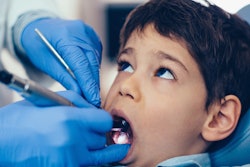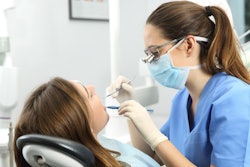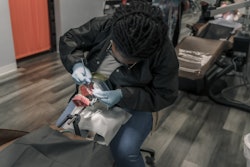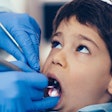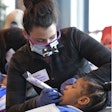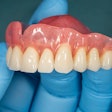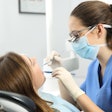
Veterans often face challenges in accessing necessary dental care, which negatively affects their overall well-being and work productivity, according to a report from the CareQuest Institute for Oral Health and the American Institute of Dental Public Health (AIDPH).
Additionally, poor oral health, associated with chronic conditions like heart disease, leads to higher costs of missed workdays among veterans. Moreover, nearly 3 million veterans experience social and emotional impacts due to dental issues, affecting their socialization, according to the "Oral Health Is Essential to Veteran Productivity and Well-Being" report.
"The continued lack of access to dental care experienced by veterans compounds negative health care outcomes, extending beyond just health and oral health into daily work lives," Annaliese Cothron, DHSc, co-founder and executive director of AIDPH, said in a press release dated March 19.
Despite more than 9 million veterans being eligible for medical care through the U.S. Department of Veterans Affairs (VA), a staggering 85% lack coverage for dental care. Additionally, only 15% of veterans have access to dental care through the VA; among those, only one-third use this benefit each year, according to the findings.
The poor oral health of veterans has a significant impact. They are 60% more likely to have tooth decay and are 42% more likely to have gum disease than those who haven't served in the military, affecting their work productivity and daily life, according to the report.
Also, veterans are at a higher risk of chronic diseases like diabetes and heart disease. Around 22% of veterans have diabetes compared to 12% of nonveterans, and nearly 11% have heart disease compared to about 4% of nonveterans. Among veterans with diabetes, those who didn't visit a dentist in the past year had 24% more missed workdays annually, while for veterans with heart disease, this number was 392% higher, according to the report.
Additionally, feelings of self-consciousness about their dental health can exacerbate productivity loss. National Health and Nutrition and Examination Survey data analysis shows that almost 3 million veterans have felt self-conscious or embarrassed about their teeth, mouth, or dentures at some point in the past year. This concern can in turn negatively impact a person's willingness to go for job interviews, their ability to communicate, and their self-confidence -- stemming from their teeth's aesthetic appearance, according to the results.
"(Nevertheless,) the solutions exist, and now is the time to enact needed policy change to ensure our nation's veterans, who have made incredible sacrifices for our country, are able to live healthy, productive lives when they return home," Dr. Myechia Minter-Jordan, MBA, president and CEO of CareQuest Institute, said in the release.




